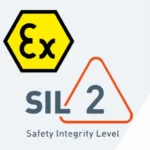
Unveiling the Distinctions SIL2-ATEX
December 1, 2023
Unveiling the Distinctions SIL2-ATEX
December 1, 2023Technical Library
Water Leak Detection Systems
Water Leak Detection Systems: Advantages and Applications in Various Areas
Introduction:
Water leaks can cause significant damage to infrastructure, assets, and properties, leading to costly repairs and operational disruptions. Water leak detection systems have become integral in mitigating these risks by providing early identification and alerting operators to potential leaks. This technical article explores the advantages of water leak detection systems and their applications in various areas, highlighting the crucial role they play in preventing water-related disasters.
Advantages of Water Leak Detection Systems:
1-Early Detection:
-
- One of the primary advantages of water leak detection systems is their ability to identify leaks at an early stage.
- Early detection allows for prompt intervention, reducing the extent of damage and minimizing repair costs.
2-Continuous Monitoring:
-
- Water leak detection systems operate continuously, providing round-the-clock monitoring of water distribution systems, pipelines, and critical infrastructure.
- Continuous monitoring ensures that leaks are detected as soon as they occur, even outside normal working hours.
3-Minimization of Water Loss:
-
- By quickly identifying and addressing leaks, water leak detection systems help minimize water loss, contributing to the conservation of this precious resource.
4-Prevention of Structural Damage:
-
- Water leaks can lead to structural damage, compromising the integrity of buildings and infrastructure.
- Timely detection helps prevent long-term structural damage, preserving the lifespan of assets.
5-Reduced Downtime:
-
- In industrial settings, water leaks can result in downtime and production halts.
- Water leak detection systems contribute to reduced downtime by allowing operators to address issues swiftly, maintaining operational continuity.
Applications of Water Leak Detection Systems:
1-Commercial and Residential Buildings:
-
- Water leak detection systems are commonly installed in commercial and residential buildings to safeguard against plumbing failures, pipe bursts, and appliance leaks.
- These systems can be integrated with building management systems for centralized monitoring.
2-Data Centers:
-
- Water leaks pose a significant risk to sensitive electronic equipment in data centers.
- Leak detection systems are deployed to protect servers, storage devices, and critical infrastructure, ensuring uninterrupted operation.
3-Industrial Facilities:
-
- Industrial plants, manufacturing facilities, and processing units utilize water leak detection systems to protect equipment, prevent damage to raw materials, and maintain production efficiency.
- These systems are particularly crucial in areas where corrosive substances are used.
4-Critical Infrastructure:
-
- Water leak detection is essential in critical infrastructure such as transportation tunnels, bridges, and reservoirs.
- Rapid detection and response help prevent structural damage and ensure the safety of transportation networks.
5-Water Distribution Networks:
-
- Municipalities and water utilities deploy leak detection systems in water distribution networks to identify and repair leaks in pipelines.
- This aids in conserving water resources, minimizing non-revenue water, and optimizing the efficiency of water supply systems.
Considerations and Implementation:
1-Sensor Technologies:
-
- Water leak detection systems utilize various sensor technologies, including point sensors, cable sensors, and acoustic sensors.
- The choice of sensor technology depends on the specific application and the characteristics of the environment.
2-Integration with Automation Systems:
-
- Water leak detection systems can be integrated with automation and control systems for seamless operation and quick response.
- Integration allows for automatic shut-off valves and other preventive measures in case of a detected leak.
3-Regular Maintenance and Testing:
-
- Periodic maintenance and testing are crucial to ensure the continued effectiveness of water leak detection systems.
- Regular checks of sensors, communication systems, and alarm functionalities help maintain the system's reliability.
Conclusion:
Water leak detection systems are indispensable tools in preventing water-related disasters and protecting assets in various areas. Their ability to provide early detection, continuous monitoring, and rapid response contributes to reducing water loss, minimizing damage, and ensuring the efficient operation of critical infrastructure. As technology continues to advance, the implementation of water leak detection systems will play an increasingly vital role in safeguarding against the detrimental effects of water leaks in diverse environments.
